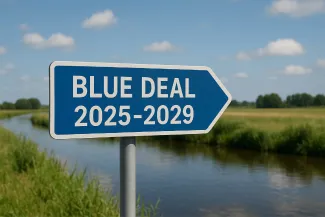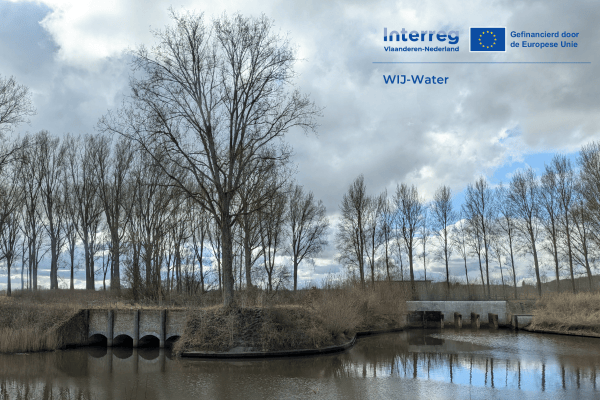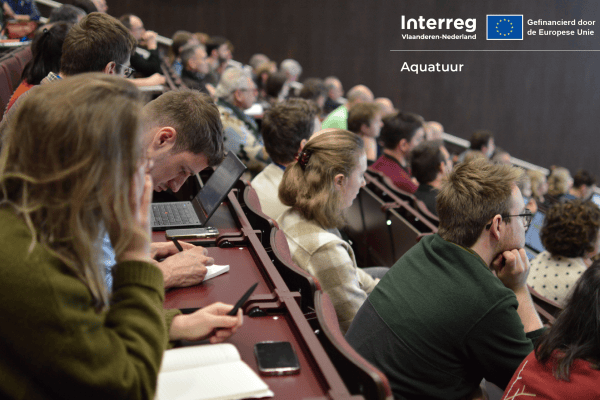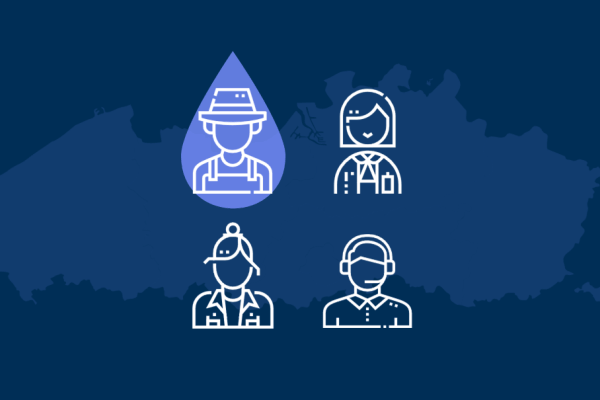Blue Deal 2025–2029: new rules and opportunities for agriculture and industry
On 14 July 2025, the Flemish government launched a new Blue Deal for the 2025–2029 period with a series of fresh initiatives to accelerate improvements in water security and water quality. For agricultural and industrial companies, these initiatives bring both new obligations and concrete opportunities to work together on robust solutions. What initiatives have been launched?

Robust permitting and legal certainty
A stronger legal basis for permits is being introduced to reduce unpredictability for companies. Permits will be systematically evaluated and, if necessary, adjusted, with priority given to businesses that have the greatest impact on water quality.
-
Companies that cause environmental quality standards (EQS) to be exceeded must apply—or at least investigate—measures that go beyond Best Available Techniques (BAT).
-
For new discharges and concentrates from circular projects, a system-based approach is being explored: a discharge may be permitted if at least an equivalent amount of pollution is removed elsewhere in the same water system, thus meeting the improvement requirement.
-
Legislation will also be amended to better control substances of concern such as PFAS through permitting. This means companies will need to carry out more thorough analyses of their wastewater streams and consider possible source-level measures.
Sponge targets: infiltration, buffering and retention
By 2026, Flanders will set area-specific sponge targets aimed at:
-
More infiltration (allowing water to better penetrate the soil);
-
Less drainage loss or controlled drainage (retaining water for longer);
-
Greater buffering capacity (creating more storage space for water).
The measures to achieve these sponge targets will be selected within area coalitions where farmers, entrepreneurs and other local stakeholders work together. In this way, soil characteristics, land use and local opportunities are taken into account.
For the agricultural sector, measures such as building up organic matter in the soil or adopting climate-adaptive crops (e.g. drought-resistant varieties, water-loving crops or alternatives to high-input crops) can deliver a double benefit: improved water management and higher soil quality.
Strategic water supply plan by the end of 2026
Together with different sectors, Flanders is preparing a strategic plan that will:
-
Balance the future water demand of agriculture and industry against available supplies;
-
Map vulnerabilities;
-
Formulate solutions and policy recommendations for efficient and circular water use;
-
Identify alternative water sources and investment priorities.
This plan will serve as an important framework for business investments and collaborative projects.

New financing vehicles
For the 2025–2029 period, the Environment policy domain has earmarked €480 million for investments in the water system (excluding the water chain).
Of this, €130 million is reserved for strategic projects such as SIGMA, Dender, and the coast. The remaining funds are allocated to projects in other areas, targeted policy support in the form of monitoring and scientific backing, research and innovation. There is also funding for initiatives on water efficiency and water reuse, subsidies for depaving, and the creation of wetland nature.
Despite this portfolio, there remains a clear gap between available resources and actual needs. Therefore, the government will also explore private and public-private financing models for water and climate adaptation projects, in collaboration with banks, insurers and other investors. Concepts such as green bonds or rewarding ecosystem services are explicitly being considered. This opens up new opportunities for agricultural and industrial companies to accelerate their investments.
VITO Kennispunt Water and the Blue Deal: from concept to implementation
To achieve the ambitions of the Blue Deal, Flanders is strongly focusing on “digitalisation and innovation” as a strategic lever. In this context, the role of VITO Knowledge Centre Water is being considered to build and share the necessary expertise. This fits perfectly within our mission to support entrepreneurs in their search for systemic and innovative water solutions – from concept to implementation.
These new initiatives also tie directly into our four priority focus areas, around which a coordinated set of actions will be developed in the coming period:
-
Chain approach to pollutants
-
Management strategies for soil and water systems
-
Synergy opportunities on industrial sites
-
Business models for water investments
Through this focus, together with companies and partners, we increase impact and accelerate the achievement of the Blue Deal objectives.






